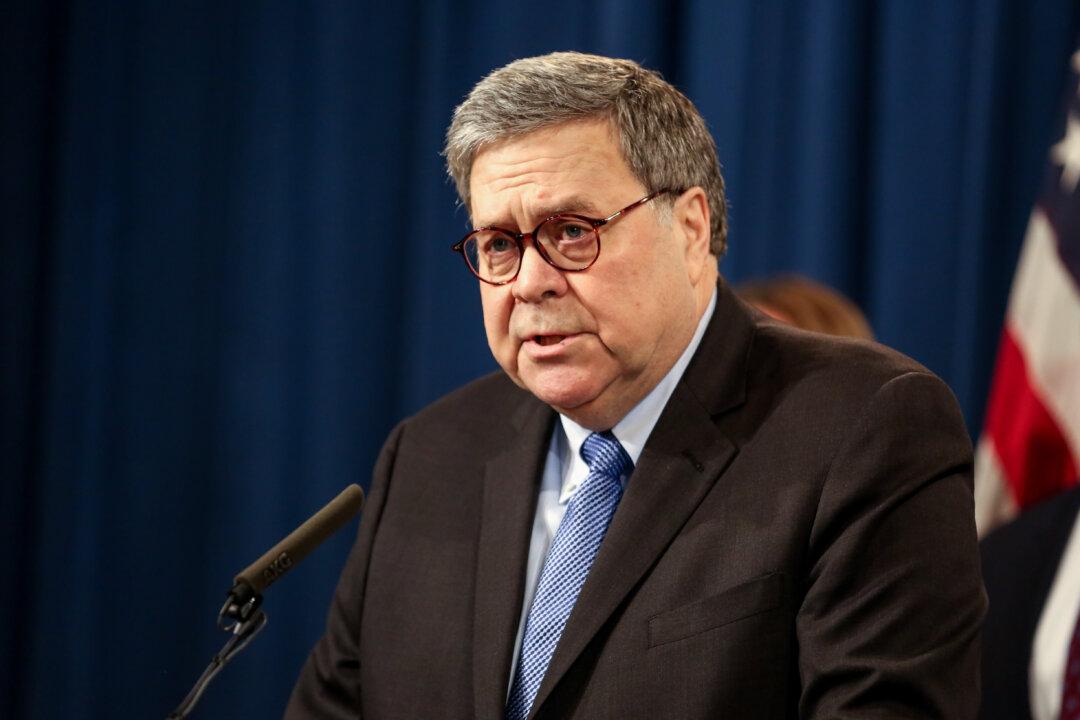Attorney General William Barr said Special Counsel Robert Mueller was responsible for looking at whether former British intelligence officer Christopher Steele’s dossier had been compromised with disinformation from Russia.
Barr made the comments during an interview with CBS’s Catherine Herridge where they discussed a range of topics including the Justice Department’s decision to dismiss the charges against Lt. Gen. Michael Flynn, COVID-19 measures, and Russian disinformation in the Steele dossier.




